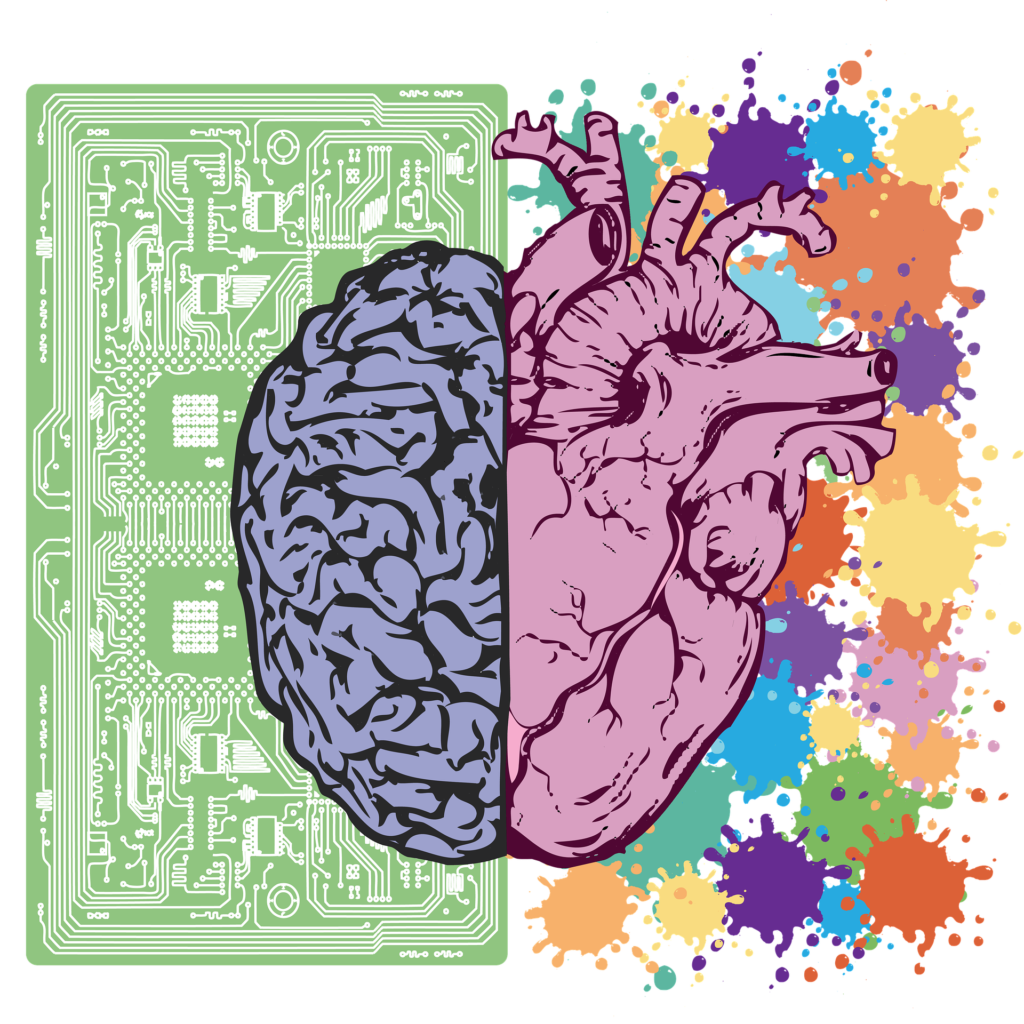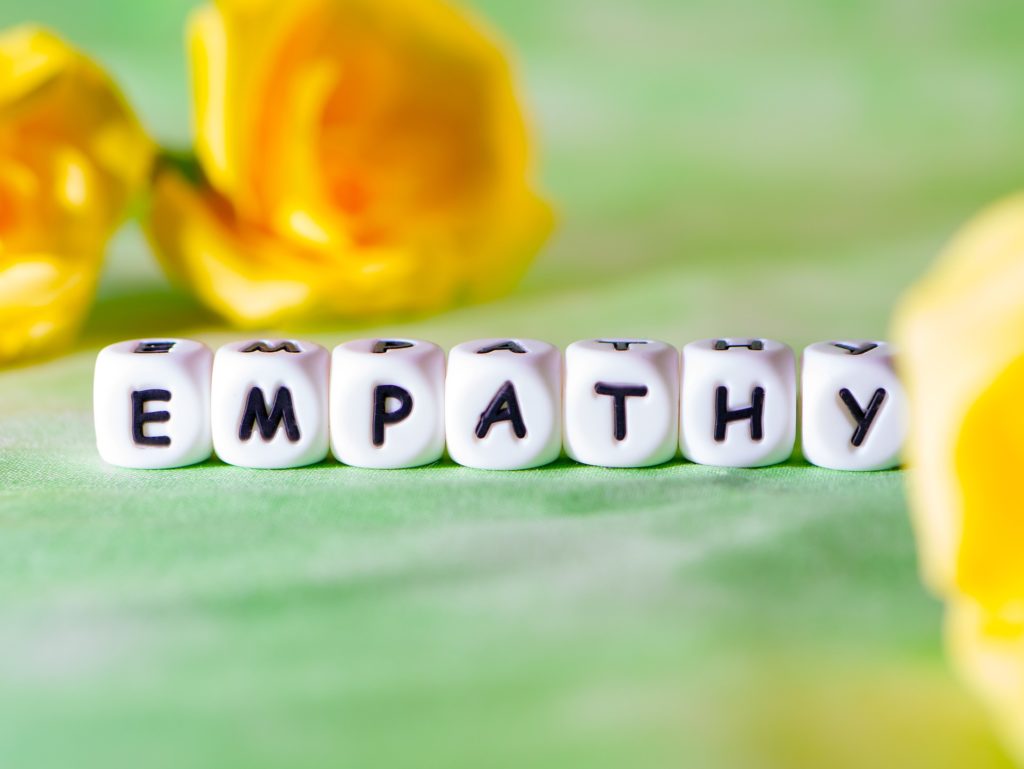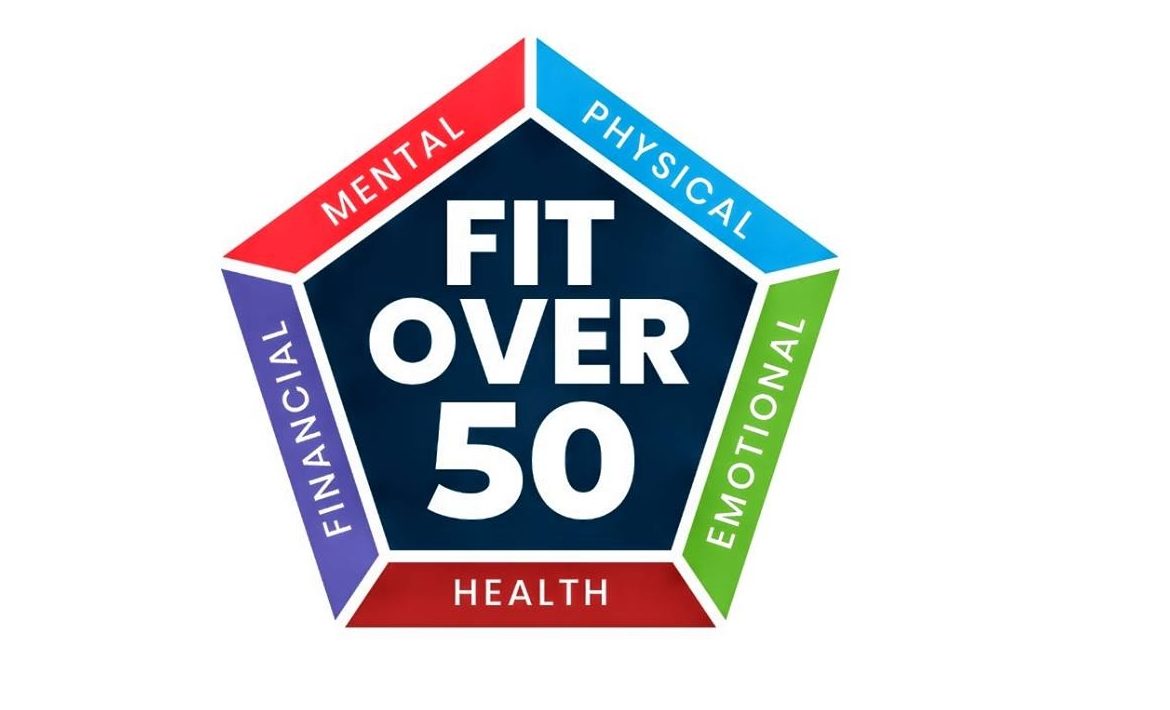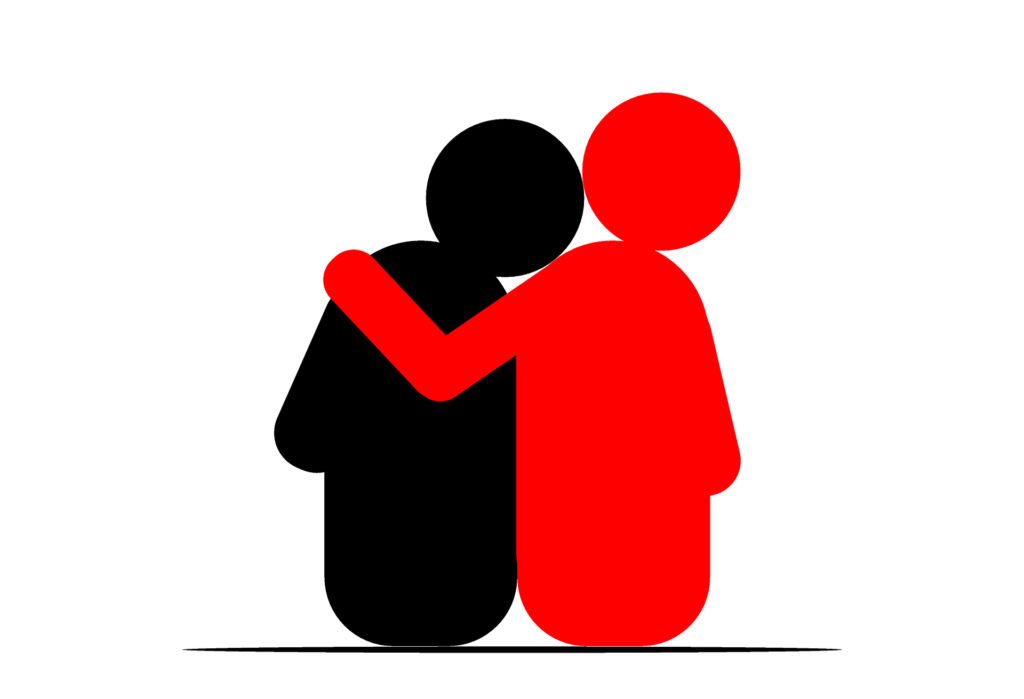What Is Emotional Intelligence?
Emotions That Affect Us
The theory of emotional intelligence was first developed by psychology professors Peter Salovey and John D. Mayer. Emotional intelligence is defined as the capacity to recognize and define the emotions that affect us. This allows individuals to not only understand their own emotions, but also the emotions of others.
One of the key components of emotional intelligence is the ability to effectively communicate emotions. This includes being able to label emotions accurately and use emotion vocabulary effectively.
Another important aspect of emotional intelligence is the ability to use emotions constructively. This means being able to manage one’s own emotions in a healthy way and using emotions to achieve positive outcomes.
Ultimately, emotional intelligence is a complex topic with many different facets. However, understanding the basics of emotional intelligence can help individuals to better manage their own emotions and interact with others in a more positive way.

What are the 7 signs of emotional intelligence?
The seven signs of emotional intelligence are:
1. Self-awareness –
Self-awareness is critical in order to be able to effectively manage emotions. If you are not aware of your own emotions, you will have a difficult time managing them and may act out in ways that are detrimental to yourself or others. By being aware of your emotions, you can understand why you are feeling a certain way and work on managing those emotions in a healthy way. This can be especially helpful in times of stress or conflict, when it is important to be able to stay in control of your emotions.
2. Self-regulation –
Self-regulation is key to having a successful life. You need to be able to control your emotions, including anger, frustration, and anxiety. This allows you to maintain control in difficult situations and stay focused on your goals. When you can self-regulate, you are less likely to act impulsively and make decisions that you may later regret.
3. Motivation –
A motivated individual is one who is driven to achieve their goals, not just for themselves, but also for the good of the team or organization. They are willing to put in the extra effort to help their team reach its goals and are always looking for ways to improve. They are constantly striving to be their best and make a positive impact on those around them.
4. Empathy –
One of the most important traits to have in life is empathy. It allows you to understand other people’s feelings and perspectives, even if you don’t agree with them.
This is especially important in relationships, both personal and professional. If you can put yourself in someone else’s shoes, you can better understand their point of view and find a way to compromise or work together. Empathy also allows you to be more understanding and compassionate towards others, which can make them feel appreciated and loved.
5. Communication –
The ability to communicate effectively is essential in any relationship. It allows people to share their thoughts and feelings, and to understand one another. Good communication skills involve both verbal and nonverbal elements.
Verbal communication includes speaking clearly and concisely, and making sure your message is understood. Nonverbal communication includes using facial expressions, gestures, and body language to convey your message.
Good communication skills are especially important in relationships. They allow partners to share their thoughts and feelings, and to resolve conflicts effectively. Communication is also vital for building trust and intimacy. When partners are able to communicate effectively, they can overcome any obstacle together.
6. Conflict resolution –
Conflict resolution is one of the most important skills that a person can have. It is essential in personal relationships, as well as in the workplace.
When two people are able to resolve a conflict in a constructive way, it can lead to a stronger relationship and a more productive work environment. However, when conflict is handled poorly, it can lead to hurt feelings, damaged relationships, and even lawsuits.
There are many different methods for resolving conflicts. Some people prefer to talk things out and come to a compromise.
Others may prefer to take time apart to calm down and then revisit the issue. Some people may resort to yelling or name-calling. However, these types of reactions rarely lead to a positive outcome.
The key to resolving conflicts successfully is to remain calm and respectful. You should listen carefully to what the other person has to say, and try to see things from their perspective. If you can maintain a constructive dialogue, you will be much more likely to reach a resolution that satisfies both parties.
7. Teamwork –
Working as a team is essential for success in many fields. When everyone is on the same page, working together toward a common goal, the results can be astounding. This is especially true in the business world, where teamwork can mean the difference between a company that succeeds and one that fails.
But teamwork isn’t just important in the business world. It’s also essential in many other fields, from athletics to the military. In order to win a game or achieve a goal, it’s crucial that everyone be on the same page and working together. And in the military, teamwork is essential for success on the battlefield.
When it comes to teamwork, there’s no one right way to do things. Every team is different, and every team has its own strengths and weaknesses. The key is to figure out what works best for your team and then to use that to your advantage.
So what makes a good team? There are many different factors, but some of the most important ones are trust, communication, and cooperation.
If you can build a team that trusts each other and can communicate effectively, you’re well on your way to success. And if everyone on the team is willing to cooperate and work together, you’re practically guaranteed victory.
How Emotional Intelligence Affects Relationships

Most people enter a relationship desiring the same things: love, understanding, empathy, and communication. We want to feel special and known, and to be with someone who “just gets us.”
So often, we hear that communication is key in maintaining a healthy relationship – and it is! But what many overlook is the importance of emotional intelligence (EQ). EQ is the ability to perceive, understand, and manage emotions.
It includes being aware of your own emotions as well as those of others, and being able to manage them effectively. Simply put, it is the key to achieving that deep understanding and connection that we all crave in a relationship.
When our EQ is high, we are more attuned to the subtle changes in ourselves and our partner that can signal a need for action. We are more sensitive to the unspoken needs of our partner, and more adept at handling conflict in a constructive way.
In short, we are better equipped to create and maintain the type of intimate relationship we all dream of. So if you’re looking to take your relationship to the next level, start by working on your EQ. It just might be the key to achieving the closeness and connection you’ve always desired.
They’ll Have Healthy Boundaries And Respect Yours
A boundary is crucial in any relationship, particularly romantic relationships. It is important if you understand something you don’t like.
People with poor boundary lines can get angry with a partner. They can’t find out how to defend themselves to avoid another boundary crossing. If a parent does not understand their limits, it will cause resentment. Eventually, these might become very heated arguments.
Emotional awareness is important for maintaining boundaries. Having high levels of emotional intelligence allows a partner to notice what bothers him/her in the romantic relationship and to be able to discuss it with his/her partner without crossing any boundaries.
This emotional awareness is also important for creating new boundaries in the relationship as needed. By communicating openly and honestly with each other, partners can create and maintain healthy boundaries in their relationship, leading to a more fulfilling and satisfying relationship for both parties involved.
Why Work On Emotional Intelligence
When people are disconnected from their physical bodies, bad things can happen. Dr. Albert Mehrabian’s research on human communication reveals that only 7% of communication is verbal, 38% is tonal, and 55% is facial.
If we’re not tuned in to our bodies, we’re likely missing out on over half of the communication that’s happening around us. This can lead to misunderstandings, arguments, and even violence.
People who are emotionally intelligent are typically better at resolving conflict, communicating their needs, and maintaining relationships.
They are typically able to understand their own emotions and the emotions of others, and they use this understanding to manage interactions effectively.
People who are emotionally intelligent know how to read and respond to nonverbal cues, and they can adjust their behavior to best fit the situation. This makes them very good at managing difficult conversations and relationships.
This is because they are able to read the emotions of those around them listen to them and respond in a way that creates understanding and harmony. For partners, this can be an extremely advantageous trait, as it can lead to a more fulfilling and satisfying relationship.
People who are good at reading emotions tend to be better listeners, and they are more likely to understand what their partner is feeling and be able to respond in a way that makes them feel heard and understood. This can help to avoid misunderstandings and build a stronger emotional connection.
A relationship can only grow and improve if both parties are constantly learning and challenging each other. In order for a relationship to last long term, both parties must be able to continue growing emotionally and intellectually. This means that the most crucial romantic relationship must remain able to grow long term, as this is likely to be the case. If you are not able to continually learn from your partner, then the relationship is not likely to be healthy in the long run.
You may practice or enhance your relationships with friends, family members, co-workers, or strangers. Cashiers in supermarkets can appear confused and annoyed and make you react impatiently. Tell me the emotion (I’ve gotten angry)? By recognizing emotions in yourself and others, you can begin to build healthier relationships and create a more emotionally intelligent world.
Happiness, Emotional Intelligence and Relationships

It’s no secret that emotionally intelligent people tend to be happier. After all, they’re better equipped to navigate the challenges of life and relationships.
But what exactly is emotional intelligence? And how can it help you to find lasting happiness? Emotional intelligence is the ability to be aware of and manage one’s own emotions, and to respond effectively to the emotions of others.
Individuals who are emotionally intelligent are able to regulate their emotions, set boundaries, and resolve conflicts in a constructive way. They’re also more likely to form deep and meaningful relationships. So if you’re looking for ways to boost your happiness levels, developing your emotional intelligence is a good place to start. Here are some tips to get you started:
-Identify your emotions. The first step to managing your emotions is to become aware of them. Take some time each day to check in with yourself and identify how you’re feeling. Are you angry, sad, anxious, or joyful? When you take the time to name your emotions, you’ll be better able to manage them.
-Express your emotions in a healthy way. It’s important to express your emotions in a way that doesn’t hurt yourself or others. If you’re feeling angry, for example, try journaling or talking to a trusted friend instead of lashing out in anger.
-Set boundaries with others. Emotionally intelligent people know how to set boundaries with others. They don’t allow themselves to be taken advantage of or mistreated. If you find yourself in a toxic relationship, setting boundaries is essential for your happiness and well-being.
-Resolve conflict constructively. Conflict is inevitable in any relationship. But how you handle conflict can make a big difference in your overall happiness levels.
When conflict does arise, take a step back and try to see things from the other person’s perspective. Then work together to find a resolution that works for both of you. By following these tips, you can start developing your emotional intelligence and improve your overall happiness levels in the process.
Relationship Management And Emotional Intelligence
Our society has become increasingly competitive, and this has led to us developing certain personality traits that can influence our relationships.
In today’s dating scene, we are able to quickly identify a potential lover and decide how much they contribute towards our personal projects, ideals, and ambitions.
If we come to the conclusion that someone is not “enough” to be the best possible match for us, we can easily cut ties that were normally in modern times very temporary and impermanent in some sense.
This hyper-competitiveness can often lead to us feeling unsatisfied with our romantic relationships, as we are constantly looking for someone who can better fulfill our needs.
Ultimately, this can cause us a great deal of unhappiness. Our competitive natures have led to an entitlement attitude in many of us when it comes to love and relationships. We feel that we are owed something by our partner, because we have put so much effort into the relationship itself.
This attitude often leads to resentment and arguments, as our partner can often feel suffocated by our need for perfection. In order to have happy and healthy long term relationships, it is important to learn how to balance our competitive natures with our need for companionship and love.
How do you show emotions in a relationship?
Being emotionally available is key to any lasting relationship. Simply put, if you’re not there for your partner emotionally, the relationship will suffer.
Being emotionally available is key to having healthy relationships. When you’re emotionally available, you’re present and attentive.
This means really listening to what they’re saying, responding in a way that shows you understand their feelings, and being sensitive to their needs. It’s also important to physically express your emotions.
For example, if someone is upset, offer them a hug. These small gestures can make a big difference in the way we connect with others.
When we’re emotionally available, we’re more likely to form strong bonds with the people we care about. As a result, we can experience greater satisfaction and enjoyment in our relationships.
A hug, a kiss, or even just taking their hand can show how much you care. Ultimately, though, the most important thing is to be genuine and authentic in your interactions with your partner. If you can manage that, they will undoubtedly know how much you love and care for them.
Social Intelligence Vs Emotional Intelligence
Most people are familiar with the concept of intelligence, but few realize that there are actually different types of intelligence. Social intelligence and emotional intelligence are two closely related but distinct skills.
As the names suggest, social intelligence is the ability to read and understand other people, while emotional intelligence is the ability to understand and manage your own emotions.
People with high social intelligence are typically very good at networking and building strong relationships.
They are able to quickly read other people’s body language and facial expressions, and they have a strong understanding of other people’s motives and emotions.
People with high emotional intelligence, on the other hand, tend to be very good at managing their own emotions.
They are able to stay calm under pressure, and are less likely to let their emotions get in the way of their work.
Both social intelligence and emotional intelligence are important skills for success in life. If you only have one of these skills, it is important to focus on developing the other.
Having strong social intelligence will help you build strong relationships and networking connections, while having strong emotional intelligence will help you stay calm and level-headed in difficult situations.
No matter which type of intelligence you are stronger in, remember that both skills are important for a successful and happy life.
Managing Emotions
It is essential to be able to manage our emotions in order to be successful both personally and professionally.
When we can’t control our emotions, they often control us, leading to poor decision-making and counterproductive behaviors. Learning how to effectively manage our emotional response is therefore a critical life skill.
One of the most important aspects of managing emotions is learning how to regulate them. This means learning how to keep our emotions in check when they start to get out of hand.
When we’re able to do this, we’re less likely to let our emotions get the best of us and cause us to act impulsively or inappropriately.
Another important aspect of managing emotions is learning how to express them in a healthy way. Often, we bottle up our emotions, which can lead to problems like anxiety and depression.
When we learn how to express our emotions in a healthy way, we not only feel better emotionally, but we also improve our relationships with others.
Empathy Vs Emotional Intelligence

Both empathy and emotional intelligence are important skills to have in life, but they are different.
Emotional intelligence is about understanding your own emotions and the emotions of others. It is about being aware of how you are feeling and how your emotions are affecting other people.
Empathy Is More Important Than Emotional Intelligence
Emotional intelligence also includes being able to manage your emotions, so that you can stay calm and in control during difficult situations.
Empathy, on the other hand, is about understanding other people’s feelings. It is about seeing the world from someone else’s perspective and feeling what they are feeling.
Empathy requires a lot of listening and paying attention to what somebody is saying. It also means being able to put yourself in someone else’s shoes, even if you don’t agree with them or understand them.
Both empathy and emotional intelligence are important skills to have in life. But I think that empathy is more important than emotional intelligence, because it allows us to connect with other people on a deeper level.
Emotional intelligence can help us understand our own emotions, but it doesn’t tell us anything about how the other person is feeling. Empathy allows us to feel what the other person is feeling, and that can be really powerful
Final Thoughts – The Emotions That Affect Us
There is no doubt that both empathy and emotional intelligence are important skills to have in life. But, if I had to choose one over the other, I would choose empathy every time.
Emotional intelligence can help us understand our own emotions, but it doesn’t tell us anything about how the other person is feeling. Empathy allows us to feel what the other person is feeling, and that can be really powerful.
Understanding Someone Else’s Point Of View Benefits Both Parties
Being able to put ourselves in someone else’s shoes and feel what they are feeling is essential for both personal and professional success. It can help us build better relationships with the people around us, and it can also help us be more effective leaders.
When we understand how someone is feeling, we can respond in a way that meets their needs, rather than just reacting to them emotionally.
So, why is empathy more important than emotional intelligence? Well, for one thing, emotional intelligence can be learned.
Most people would agree that empathy is a more valuable skill than emotional intelligence. Emotional intelligence is the ability to understand and manage your own emotions, while empathy is the ability to understand and share the emotions of others.
Empathy Is Something With Which We Are Born
Empathy is something that we are born with – we cannot learn to feel what someone else is feeling, we either have it or we don’t. And, in my opinion, the ability to empathize with others is a much more valuable skill than emotional intelligence.
People who are able to empathize with others are able to build better relationships and connect with others on a deeper level.
They are able to understand emotional ques and share the feelings of others, which makes them more compassionate and understanding. People who are emotionally intelligent may be good at managing their own emotions, but they often struggle to connect with others emotionally.
So, if you want to be a successful person, I would recommend focusing on developing your empathy skills rather than your emotional intelligence skills. Empathy will help you build better relationships, while emotional intelligence will only help you manage your own emotions.


You need to be a part of a contest for one of the finest sites online. I am going to recommend this blog!